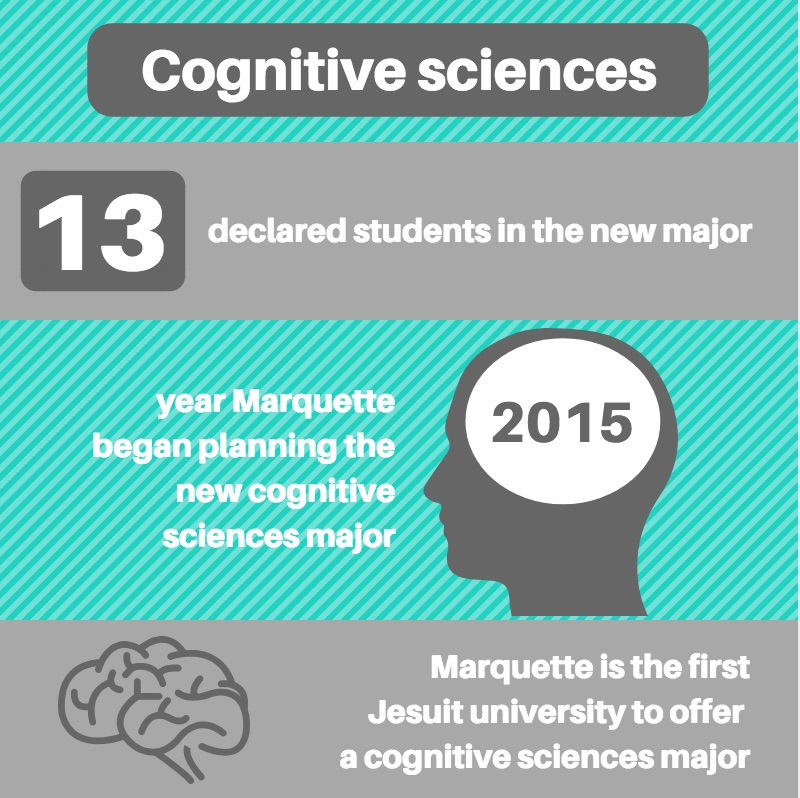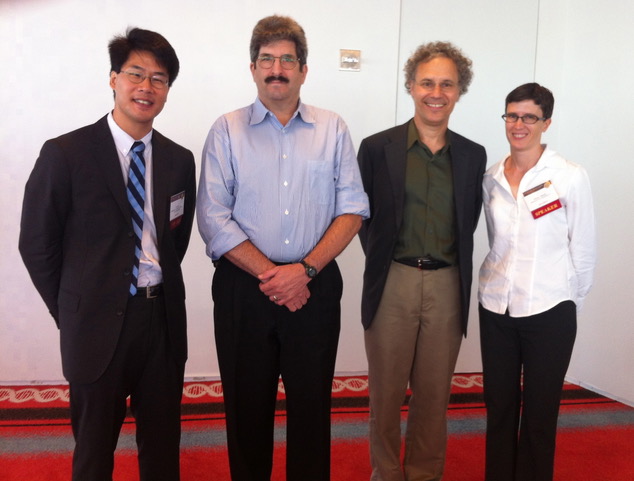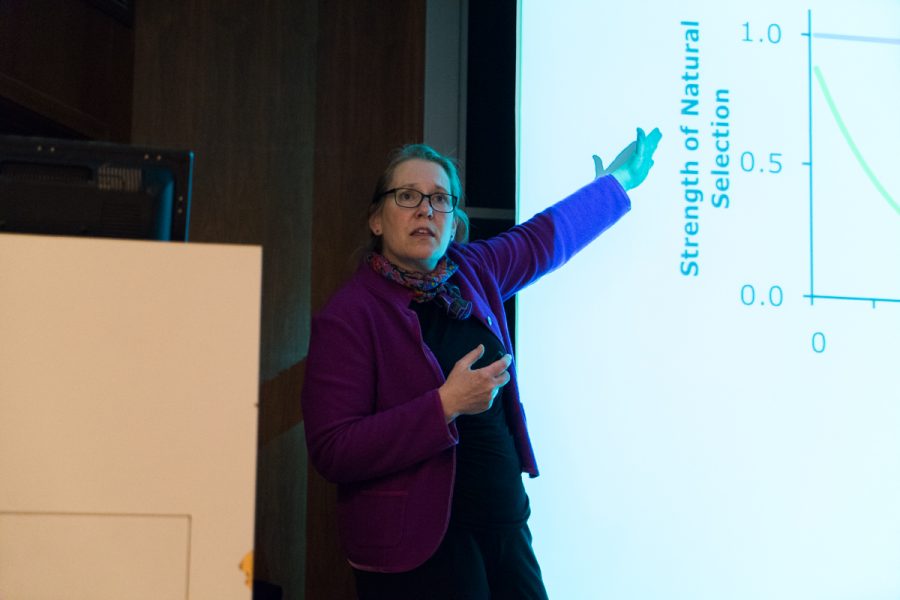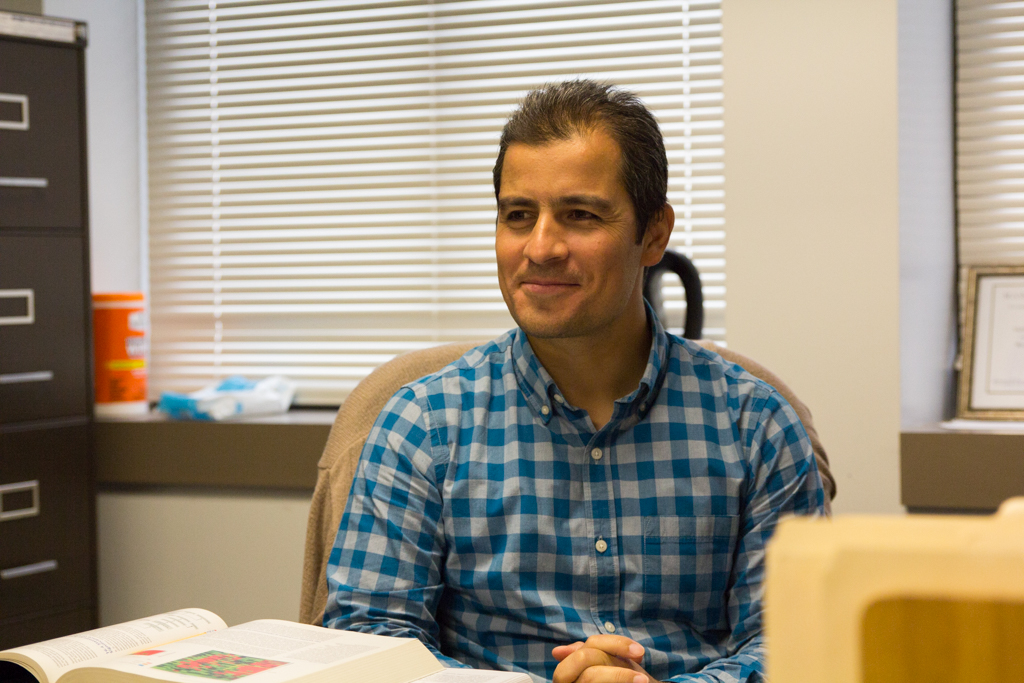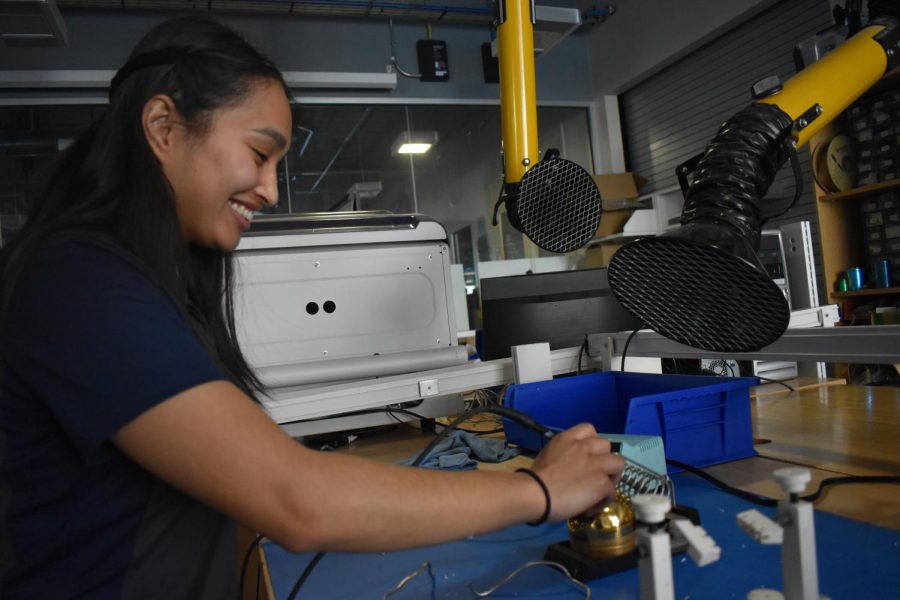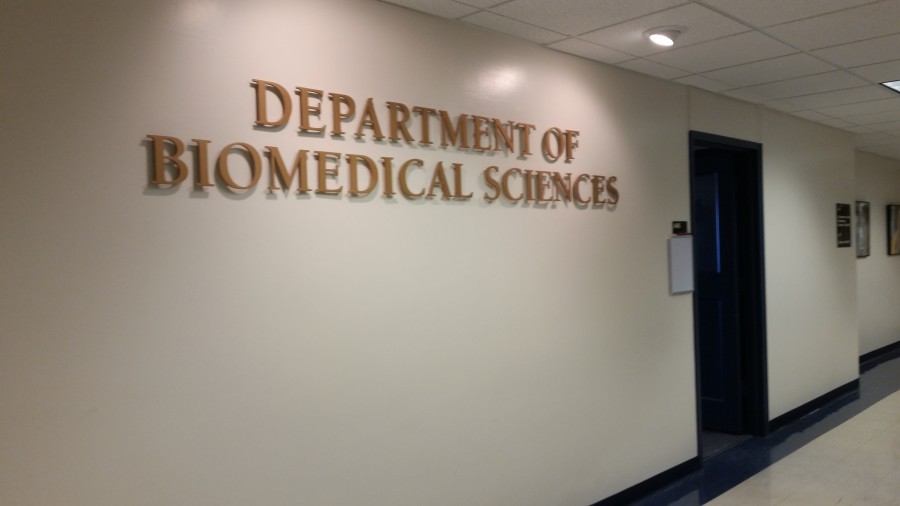The cognitive sciences interdisciplinary major is in its first year and was designed to provide a unique study of the mind that requires more than one set of concepts.
The departments involved include the psychology, sociology, anthropology, philosophy, English, biology, biomedical sciences, math and computer science departments.
Corinne Bloch-Mullins, director of cognitive science and assistant professor of philosophy, said there are currently 13 declared students, which is more than expected. This number does not include freshmen, who are on track but have not yet declared the major.
Planning for the major began in 2015. The program is based off conversations with students who expressed interest in learning about the mind in a curriculum across departments.
There was no target number of students to recruit for the major, as the department was more focused on the experience of individual students, Bloch-Mullins said.
The program was designed to have flexibility so students can explore what they are excited about. Cognitive science does not have a specific track, but there is an emphasis on advising.
Students follow a layered structure. The introductory layer includes classes in philosophy, psychology and computer science, as these subjects are the foundations of cognitive science.
In the second year, students can gravitate toward what they are comfortable with. The third layer goes deeper with four chosen electives. During the fourth year, students take a capstone course that focuses on integrated learning. This is the only course specific to the cognitive science major.
“In the capstone, we will put on the table problems or questions about aspects of cognition, and then we’re attacking those questions using concepts, methods and tools from all of these areas,” Bloch-Mullins said. “Students get to write a paper drawing on the aspects they’re most excited about.”
Students are encouraged to double major since cognitive science provides deep background knowledge in a variety of areas, she said.
For now, the program does not plan on an expansion in faculty because there will not be additional cognitive science courses. The program builds on resources already in place within existing departments. They may reevaluate if the number of students grows substantially, Bloch-Mullins said.
Meaghan Mackey, a sophomore in the College of Arts & Sciences, said she picked the major as a basis for law school.
“(Cognitive science) has the ability to get as big as physical therapy or nursing (majors) because it offers a great opportunity for secondary school,” Mackey said. “Another route I was thinking was public health or hospital management. A lot people pursue higher-level psychology.”
Sara Pardej, a senior in the College of Art & Sciences, started with a psychology major and was able to plan ahead for a secondary major when she heard about the new cognitive sciences program.
“The major can be bended (sic) to be whatever you want it to be,” Pardej said. “I’m going the neuropsychology route, but other people could easily do computer science for artificial intelligence, engineering if you’re interested in construction, or linguistics because everyone can benefit from knowing how the brain works.”
Marquette is the first Jesuit university to offer a cognitive science major, Bloch-Mullins said.
“The Jesuit education is the perfect place because it makes you pause and look at the whole person,” she said. “The broad view of what it means to be a human being is exactly the kind of perspective that the program has.”

